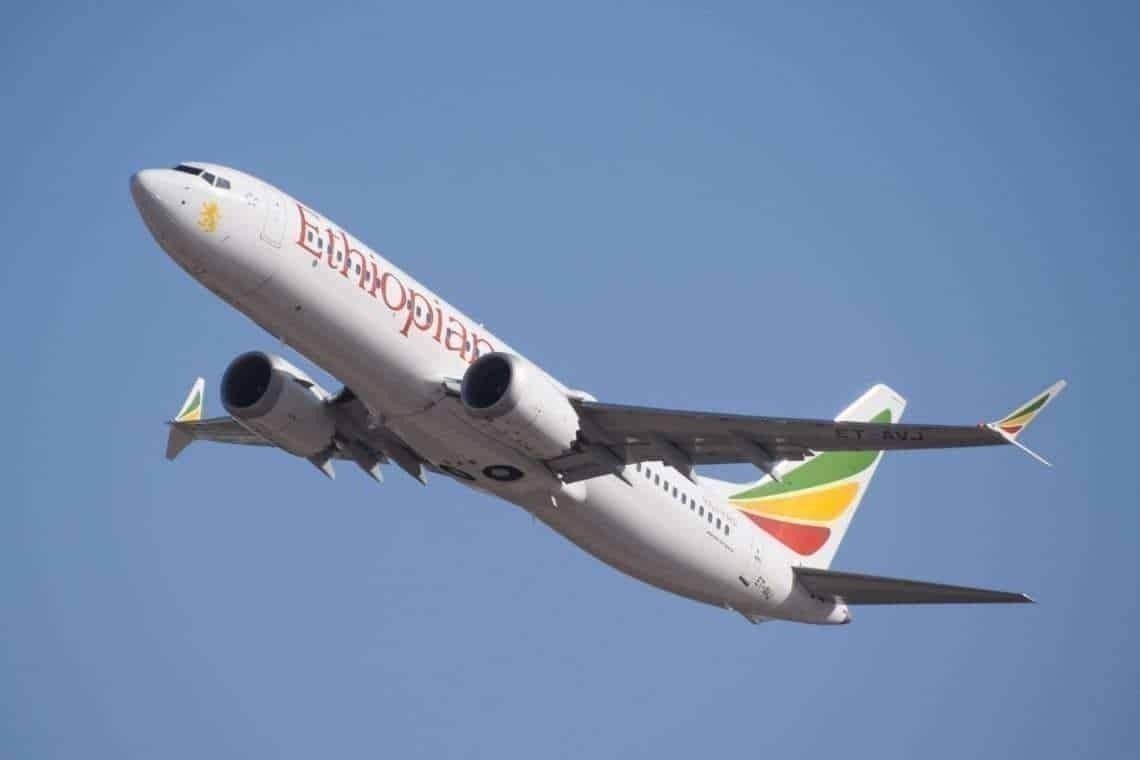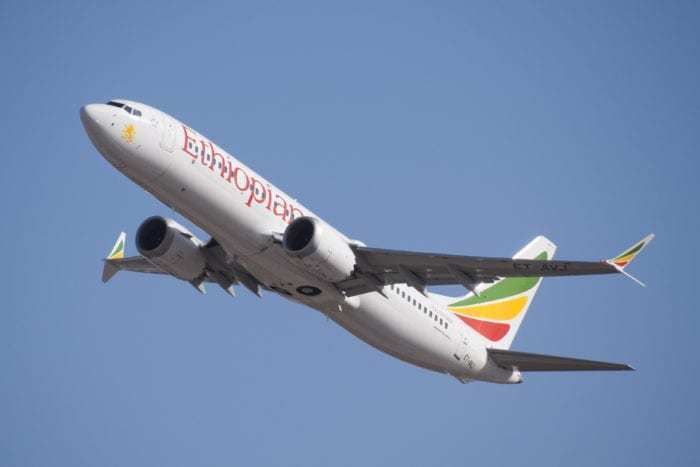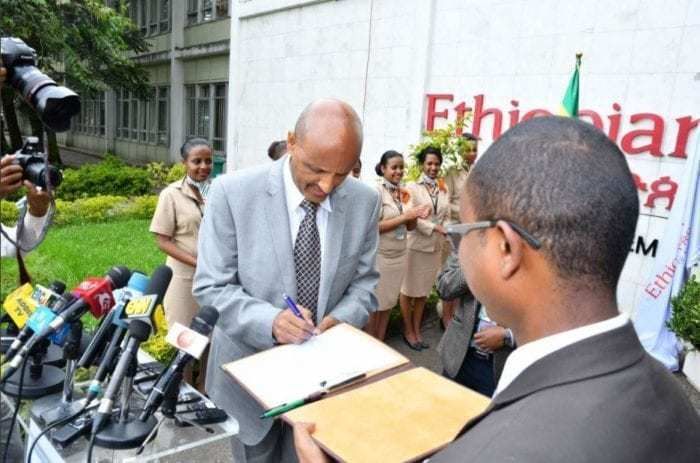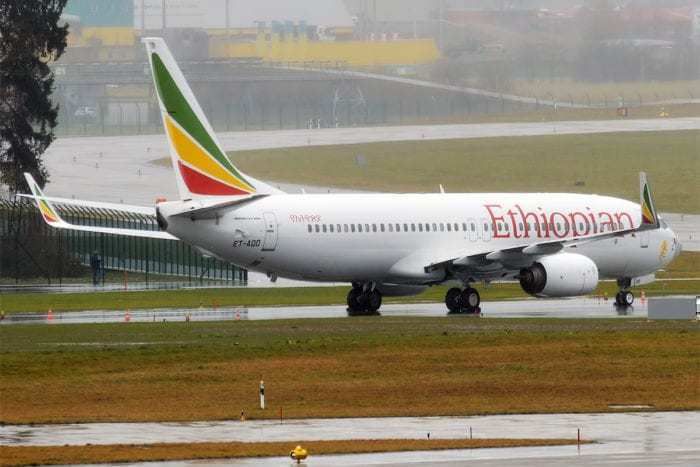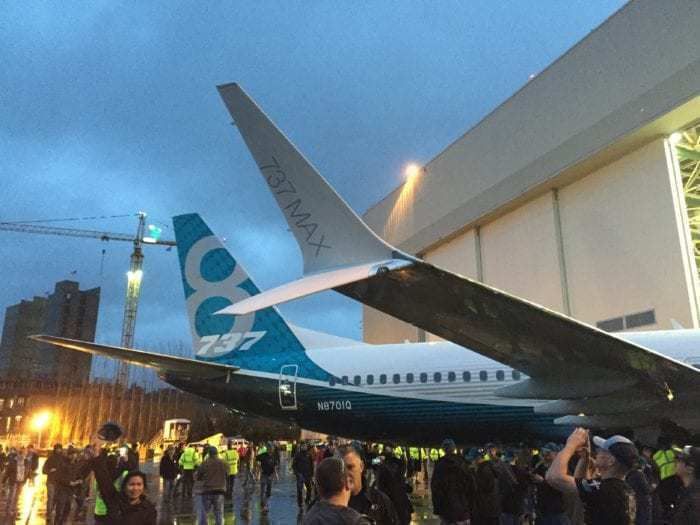On Monday, an exclusive interview with Ethiopian Airlines CEO Tewolde Gebremariam aired on NBC News. During the interview, the airline chief made some bold statements about where he saw his company's relationship with the Boeing 737 MAX going, following the carriers tragic crash that killed everyone onboard. The statement that made the headlines was that Gebremariam "cannot fully say that the airplane will fly back on Ethiopian Airlines."
"At this stage I cannot, I cannot fully say that the airplane will fly back on Ethiopian Airlines. It may, if we are fully convinced and if we are able to convince our pilots, if we are ever to convince our traveling public." -Tewolde Gebremariam, CEO of Ethiopian Airlines
It's been over two months since the tragedy occurred as flight ET302 lost control flying from Addis Ababa to Nairobi on March 10th, 2019. Since then damning reports have come out painting Boeing in very negative light.
As investigations and inquiries continue, Boeing has had to defend itself on various issues including why...
- ...it didn’t disclose the existence of MCAS to pilots until after the Lion Air incident.
- ...Boeing pilot training for the 737 MAX only consisted of a one-hour iPad session
- ...the “angle of attack indicator” and “angle of attack disagree light” were not standard safety features
It is still uncertain when the 737 MAX will fly again, though several airlines are counting on the FAA grounding being lifted sometime towards the end of the summer. Meanwhile, Boeing is hard at work testing MCAS and re-gaining certification.
Deep wounds remain
Of course, the tragedy is on Gebremariam's doorstep, dealing very directly with the aftermath. As Ethiopia's flag carrier, the CEO of the airline has a close relationship to the citizens of the country.
It's one thing to regain the confidence of the worldwide public but another, more difficult battle to regain the trust of Ethiopian citizens. With the death of 157 passengers, many who were Ethiopian, the memory of the incident is seared into the collective conscience of the nation.
Below are some additional comments by Gebremariam:
“If we fly them again, we’ll be the last airline to fly them again."
“Because, you know, other airlines have grounded the airplane, but in our case beyond grounding the airplane, we had this tragic accident just a couple of months ago. So it takes a lot of efforts to convince everybody that the airplane is safe...But beyond that, I think we have to convince ourselves and we want to do that.”
The current Ethiopian fleet
Currently, the Ethiopian Airlines fleet mainly consists of Boeing aircraft. An exception to this is the new Airbus A350-900s (9 in service, 15 on order) for long-haul routes. For regional operations the Bombardier Dash 8 Q400 (23 in service, 10 on order) is the only non-Boeing plane.
For short-haul aircraft there are 26 older Boeing 737s in service with four 737 MAX-8s delivered and 25 on order. Larger widebody aircraft are a mix of Boeing 787s, 777s, and 767s.
The Star Alliance member airline is one of the largest and most successful on the African continent- dominating it's rivals South African Airways and Kenya Airways with an extensive route network and modern fleet of aircraft.
The alternatives
If Ethiopian Airlines chooses to abandon the 737 MAX, some comparable options exist but have their consequences:
- 737-800: Similar size (slightly less capacity), less fuel efficient than MAX equivalents.. However, no pilot re-training is required.
- Airbus A220-300: Less capacity. Would mean a mixed fleet of short-haul aircraft for Ethiopian with an additional investment in crew training.
- Airbus A320neo: Again, a mixed narrowbody fleet that will require pilot and maintenance training.
Conclusion
It makes complete sense why Tewolde Gebremariam would abandon his existing and on-order 737 MAXs. As we've written before, re-certification by aviation authorities after extensive testing may not be enough. Earning back the trust of the traveling public - especially families of the victims and the millions who fly Ethiopian Airlines is the big, intangible challenge.

